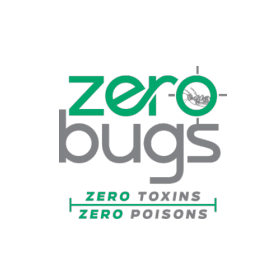The Sylva Herald
The dangers saturating our world
· Jul 26, 2023
Renewed attention around the effects of pesticides on the world’s plant and animal life has made it clear that the long-term effects of pesticide exposure are poorly understood at best. It can be easy to forget that these chemicals are affecting humans as well.
It is a sad fact of our daily lives that we come into contact with a constant barrage of dangerous chemicals. Every trip to the store, family night out, and sleepy Saturday morning at home is laced with a multitude of exposures to various poisons.
The human body is equipped with powerful abilities to render many harmful substances inert, however studies have shown that some synthetic chemicals actually build up in our systems slowly over time.
Many of these chemicals are the same things that are commonly used in farms, gardens and households worldwide.
While I hate to be a downer, there have been some important recent studies performed that give insight into how truly saturated in pesticides our world really is.
It is our responsibility to keep up to date on this topic so that we can readily make changes as they become necessary.
Most pesticide peddlers work very hard at downplaying the true nature of their poisons through bright, attractive labels and catchy product names. It works. I remember having hands drenched in Round-Up as a child while I performed my weekly chores.
While exposure such as this is not outright deadly, repeated exposures to pesticides have been shown to lead to large accumulations of chemicals in the body. Some of these chemicals have immediate negative effects.
Glyphosate, the main active ingredient in Round-Up, has been found to severely disrupt the gut bacteria in honey bees for example. It would be practical to assume that humans are similarly affected in some way.
Many pesticides are filtered through the liver which in the long term accumulates wear and tear through this constant work. What isn’t filtered out becomes stored in fat cells, sometimes reacting with other chemicals in the body and turning into more harmful forms.
Even though the winter months reduce pesticide exposure through outside forces, many common household items can be riddled with hazards.
A cursory thought on health watchdog organizations usually conjures up images of buildings filled with an endless stream of faceless scientists and unlimited funding aimed at rigorously testing every chemical and product that comes onto the market.
While the methodology is there, unfortunately many of these bodies lack the manpower and funding to truly protect our citizens. This leads to high levels of pesticides, all of which have unknown long-term effects on humans, being present in a startling variety of items.
As we become more aware of the persistence of pesticides in the world around us, we can make steps to at least reduce the amount we introduce into our systems.
In some parts of the country, water companies are able to avoid reporting high pesticide levels due to lax EPA regulations.
Recent studies found glyphosate in every sample of some brands of breakfast cereals that were tested. Tea leaves are found pleasant to a wide variety of animals, which usually necessitates high levels of pesticides during the growing season.
This has led to many large-scale tea brands selling tea with high amounts of pesticides still on the leaves. Some companies even treat their individual paper bags with toxins.
If you or your family consumes these items, do some research into alternate brands.
While modern agriculture has worked itself into a corner where frequent pesticide use is almost a requirement, it is time that homeowners think more than twice about using them in the future.
Brannen Basham and his wife, Jill Jacobs, operate Spriggly’s Beescaping, a business dedicated to the preservation of pollinators. He can be reached at brannen.basham@gmail.com.


